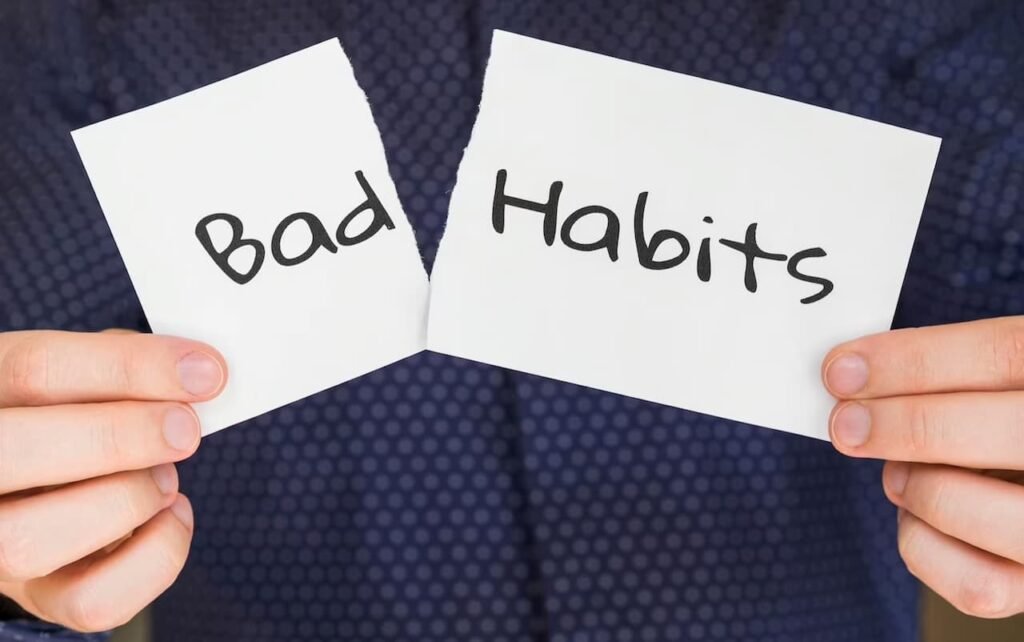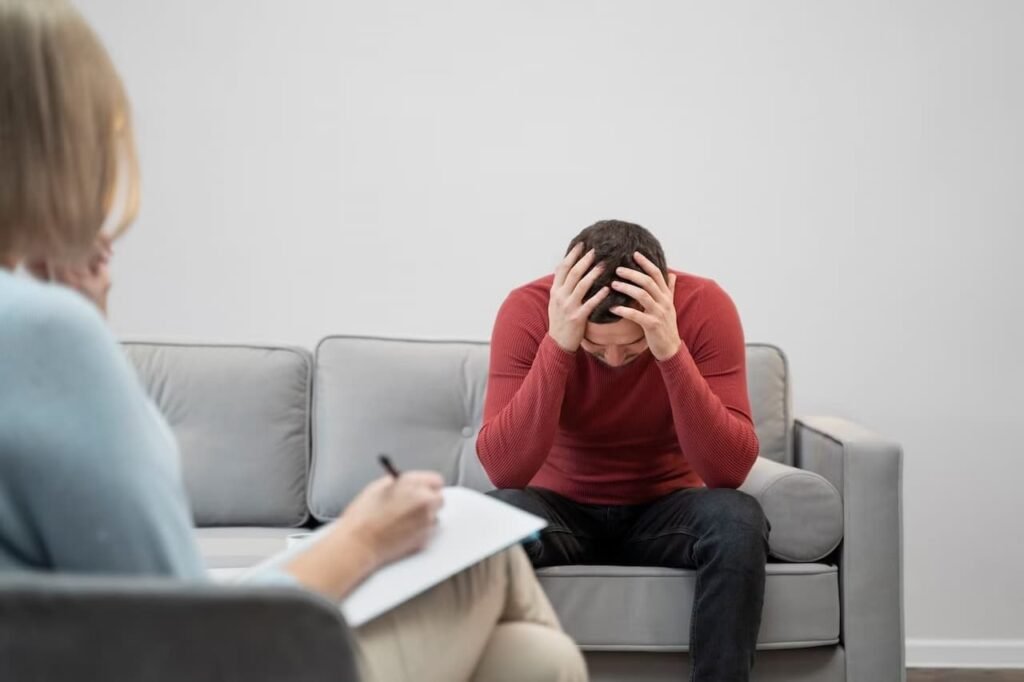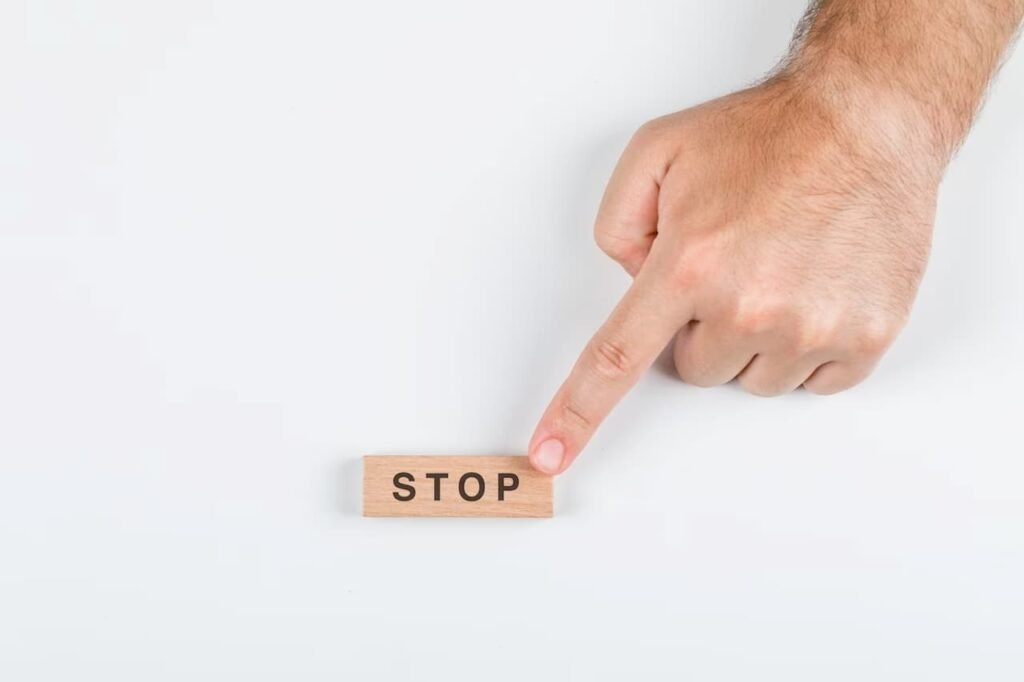Talk to a Psychologist for Online Counselling
Book Appointment Now 100% Private & Secure
Convenient, 100% anonymous, safe, certified professional counseling online.Masturbation! Yes, you read it right! This is what we are going to discuss today. Well, the most discussed topic – under the wraps always. Mostly considered a topic of censorship and some crude jokes. Well, as psychologists we receive many calls almost every day regarding giving up on masturbation addiction. It starts with just a few seconds of video clipping that gives enormous pleasure and gets converted into hours of self shagging leading to a waste of productive time. So, masturbation is the act of sexually stimulating oneself by touching or rubbing the genitals to produce sexual pleasure or orgasm. It is a normal and healthy sexual behavior that is practiced by many people of all genders and ages.
Children may start to explore their bodies as early as infancy, as a natural part of discovering their bodies and sensations. As children enter puberty, typically between the ages of 8 and 13, they may experience an increase in sexual desire and curiosity, which can lead to the onset of masturbation.


While the exact age at which individuals begin masturbating can vary widely, it is generally considered a normal and healthy part of sexual development. However, cultural or religious beliefs may lead to differences in attitudes towards masturbation and its acceptability, which can vary across different societies and communities.
It’s important to remember that masturbation is a personal choice and can be a healthy part of sexual expression for many people. However, if you have concerns about your masturbation habits or their effects on your well-being, seeking the help of a healthcare professional can be beneficial. They can provide you with more information and personalized guidance on how to manage any potential issues related to masturbation.
Masturbation is a natural and normal sexual behavior that many people engage in. However, if you feel like it has become excessive or is interfering with your daily life, you need to take strategic steps to overcome this.
Stop Masturbation In 5 Steps
1. Identify triggers and reduce the habit:
Identifying triggers is an important step in reducing any habit. If excessive masturbation is a concern, it can be helpful to keep a journal to track when and where the behavior occurs. This can help identify patterns and triggers, such as boredom, loneliness, or stress.
Once you’ve identified the triggers, try to avoid or manage them. For example, if you tend to masturbate when you’re feeling lonely, try to connect with others through social activities or hobbies. If stress is a trigger, try to find healthy ways to cope with stress, such as exercise, meditation, or therapy.
Easy accessibility to explicit content can also be a trigger for excessive masturbation. Consider setting up parental controls on your devices, or using software that blocks explicit content. Limiting your exposure to triggers can make it easier to break the habit.


2. Stay busy to replace the habit of masturbation:
Reducing the habit of masturbation will not work. This needs to be replaced with other activities to replace the dopamine that is generated during this activity. Hence, engaging in activities that keep you occupied, such as exercise, hobbies, or spending time with friends and family can provide many physical and mental health benefits, such as reducing stress and anxiety, improving mood, and increasing self-confidence. Finding a hobby or creative outlet can also provide a sense of purpose and fulfillment, and can serve as a healthy distraction from unwanted habits. Spending time with friends and family can provide social support and connection, which can also help reduce stress and improve overall well-being.
It’s important to remember that everyone’s needs and interests are different, so finding what works best for you is key. Experiment with different activities and find what brings you joy and fulfillment. If you feel that you are struggling with compulsive or addictive behaviors related to masturbation or any other activity, it may be helpful to seek support from a mental health professional.


3. Seek support- talk without feeling ashamed:
A severe urge to masturbate often, while visualizing certain things, certain people, and scenes, can be due to an underlying mental health condition. Talk to a therapist or counselor to get professional help and support to manage any underlying emotional or psychological issues that may be contributing to excessive masturbation. A mental health professional can help to identify any underlying emotional or psychological issues that may be contributing to excessive masturbation and work with the individual to develop healthy coping strategies. They can also provide support and guidance throughout the process of reducing or eliminating the behavior while promoting overall mental and emotional well-being.
It’s important to remember that seeking help is a sign of strength and that there is no shame in seeking support when struggling with any aspect of mental or sexual health. A therapist or counselor can provide a safe and confidential space for individuals to explore their feelings and concerns, and to work towards a healthier and more fulfilling life.


4. Limit access to devices & pornographic content:
A phone in hand and unlimited access to pornographic content uncontrollably leads to masturbation. Consider limiting access to pornography or other triggers, such as blocking adult websites on your devices. One can switch off all the apps, and keep the phone ringing. And keep the phone out of reach. This will reduce the urge to reach the phone and access adult content. One way to do this is by blocking adult websites on devices or setting up parental controls to restrict access to certain types of content. Many internet service providers also offer filtering services that can be activated to block access to adult content.
Additionally, it may be helpful to limit the amount of time spent on devices or social media platforms that are likely to expose individuals to pornography or other triggering content.
It’s important to note that limiting access to triggers is only one part of a comprehensive strategy for managing problematic pornography use. It’s also important to address any underlying emotional or psychological issues that may be contributing to the behavior and to develop healthy coping strategies. Seeking support from a therapist or counselor can be helpful in this process.


5. Be patient – it’s a revival phase:
Changing habits takes time, so be patient and kind to yourself. Remember that progress, not perfection, is the goal. During the time of giving up on any addiction, you might feel frustrated and kick yourself for deciding to give up on what you love the most. But be patient and remember there will be days when you might go back to your old addiction once again as the urge becomes uncontrollable. It’s ok, pull buck up yourself, get back to your commitment, and start working on yourself again. If you leave this half way it will be probably impossible to give up the addiction.
Reasons for masturbation
Masturbation is a natural and normal sexual behavior that is usually driven by sexual desire or curiosity. It is a common form of self-exploration and sexual expression for both men and women. While the specific causes of masturbation can vary from person to person, some common factors that may contribute to it include:
Hormones:
Hormones play a major role in this. During the growing up years, boys go through this phase. The release of hormones, such as testosterone, can increase sexual desire and drive individuals to masturbate.


Stress or boredom:
An empty mind is the devil’s workshop, we all know. Hence, when idling, a person might want to feel some exhilarating experience, and masturbation comes easily. Masturbation can be a way to relieve stress or boredom, providing a temporary escape from daily life.
Sexual exploration:
In getting to know more about one’s sex, and exploring one’s sexual identity and preferences, masturbation comes in handy. Masturbation can be a way to explore one’s own body and sexual preferences, which can be an important part of developing a healthy sexual identity.


Relationship status:
One might feel the urge to be loved by someone. This is a biological need. Masturbation may be more common for individuals who are not in a sexual relationship or who are in a long-distance relationship.
Cultural or religious factors:
Some cultures or religions may view masturbation as taboo or sinful, which can lead to feelings of shame or guilt. Some religions do not allow discussing sex in an open environment. When suppressed these feelings, a person feels like venting out in other ways, masturbation is one such activity.
However, excessive or compulsive masturbation can potentially lead to some negative consequences, such as:
Physical irritation:
Frequent or aggressive masturbation can cause irritation or soreness in the genital area. Unhealthy habits can lead to bacterial or fungal infections too. If irritation or pain persists one needs to seek the halp of a medical professional.


Sexual dysfunction:
In some cases, excessive masturbation may lead to sexual dysfunction, such as difficulty achieving or maintaining an erection. There are many cases of Erectile dysfunction (ED) and early ejaculation, which is a result of excessive masturbation Sexual dysfunctions are more psychological than physiological. These activities, tame the mind to seek pleasure unnaturally, and hence, when encountered in a real-life situation of lovemaking, that part refuses to cooperate.
Emotional or psychological effects:
Excessive masturbation can also have emotional or psychological effects, such as feelings of guilt, shame, or anxiety. The cultural and social stigma attached to exploring one sexuality and sexual preferences may cause one to dwell in guilt after doing this activity. Hence, using other constructive ways to deal with these thoughts would be a great idea.


Interference with daily life:
Masturbation might appear to be a very simple habit, that might start with seeking pleasure for a few seconds and might continue for hours of masturbation interfering with daily activities. If masturbation becomes a compulsion that interferes with daily activities or relationships, it may indicate an underlying issue that requires professional help.
It’s important to remember that everyone’s experiences with masturbation are different, and what may be excessive or problematic for one person may not be for another. If you have concerns about your masturbation habits or their effects on your physical or emotional well-being, talking to a healthcare professional can help you get more personalized guidance and support.
Masturbation and the dopamine effect
Masturbation can have an impact on the brain’s dopamine reward system, which is involved in regulating pleasure and motivation. During sexual activity, dopamine is released in the brain, producing feelings of pleasure and reward. This release of dopamine reinforces the behavior, making it more likely to be repeated in the future.
Repeated masturbation can lead to changes in the brain’s reward system, potentially leading to the development of tolerance, where the same level of pleasure requires more stimulation over time. This may contribute to an increase in the frequency or intensity of masturbation, as individuals seek to maintain the same level of pleasure.
Final word
In some cases, excessive or compulsive masturbation may be a sign of an underlying issue with the brain’s reward system, such as addiction or other mental health concerns. If you are concerned about your masturbation habits or their effects on your well-being, seeking the help of a healthcare professional can be beneficial. They can provide you with more information and personalized guidance on how to manage any potential issues related to the dopamine reward system and masturbation. Talk to a counselor to help or visit a sexologist to know more about masturbation and its effects and other psycho-physiological issues.
Call us to book a session today.
Contact us at +91 9811335150
Email us – info@onlinecounselling4u.com
Follow us on Facebook or Instagram
Talk to a Psychologist for Online Counselling
Book Appointment Now 100% Private & Secure
Convenient, 100% anonymous, safe, certified professional counseling online.

